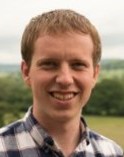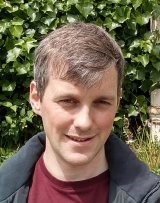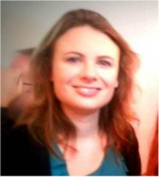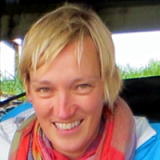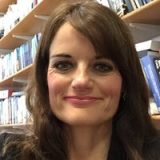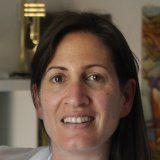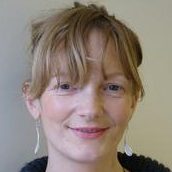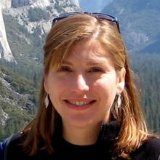Laurence’s research interests focus on hydrodynamic models, elevation data, geostatistics and remote sensing. His research focuses on data-sparse areas, with current projects including FLICH: Floods and livelihoods in the Central Highlands of Vietnam, HyFLOOD: Developing Next Generation Hydrodynamic Models in Africa, as well as supporting disaster response to recent tropical storms in Central America and South-East Africa.
John Morgan
My research interests lie in early modern environmental history, with a focus on histories of water and flooding. I am engaged in several projects related to these research interests – on early modern flooding; internal drainage boards; and environment and emotion – for further information see link below.
Gemma coxon
I am a Lecturer in Hydrology within the Hydrology Group in the School of Geographical Sciences. My research focusses on understanding and predicting hydro-climatic extremes (floods and droughts) in changing environments. My expertise centres on building, applying and evaluating hydrological models for the improved simulation of water systems from local to continental scales across large samples of catchments.
Peter Watson
Peter’s research focuses on climate events and climate change, atmospheric weather systems, hazard and risk datasets. His work with the climateprediction.net team has produced large atmospheric model simulation datasets at a resolution high enough to resolve extratropical storm systems, with the potential to drive hydrological models in the future.
Christopher Bear
Christopher’s research considers the relationships between humans, animals and technologies; recreational fisheries; aquatic geographies and the use of insects as food and feed.
Claire Earlie
Claire’s research covers coastal geomorphology; nearshore hydrodynamics; rocky coasts; coastal cliff erosion; natural hazards; in situ and remote sensing data.
Gillian Bristow
Gill’s research covers regional economic development; regional economic resilience; local and regional competitiveness; and regional policy.
Hannah pitt
Hannah’s research focuses on the community use of blue-greenspaces, their benefits and what prevents people accessing them; current project work with Canal and River Trust.
Jon Anderson
Jon’s research focuses on water worlds and surfing places; geography, place & culture; including literary geographies.
Penny J Johnes
Penny is an environmental scientist by background who has worked on the biogeochemistry of aquatic systems, and the impacts of food production and environmental change on the quality of inland and coastal waters for the past 25 years. She has interests in environmental pollution, risk, adaptation, policy and management, and in the challenges we face in resolving the inherent conflicts between meeting demand for water, food and energy security.
Paul Bates
Paul is a hydrologist by background, a Fellow of the American Geophysical Union and a Royal Society Wolfson Research Merit Award holder. He has widespread research interests in risk, resilience, uncertainty, governance and decision-making in relation to natural hazards and global water issues.
Patricia Sanchez-Baracaldo
Patricia’s research aims to understand how cyanobacteria (also known as blue-green algae) have contributed to global nutrient cycles (e.g., nitrogen, carbon, oxygen) through geological time.
Katerina Michaelides
Katerina’s research focuses on rainfall-driven processes at the Earth’s surface, including overland flow generation, sediment transport, erosion and biogeochemical fluxes with a specific focus on dryland basins where water and nutrients are greatly limited. Current projects include ‘Drought Resistance in East African Dryland Regions’ and ‘Re-work of Mobile Phone App Development for Drought Adaptation in Drylands’.
Jemma Wadham
Jemma’s research interests cover hydrological and biogeochemical processes that occur within glacier and ice sheet systems, and in their fore fields and which have a potential regional or global impact. She is currently working on various water projects.
Jeff Neal
Jeff’s research interests include the development of hydraulic models and the assimilation of observations with such models across and range of spatial scales. He also researches support for flood risk management, which includes work on modelling flood hazard in urban areas and methods to increase the computational efficiency of hydraulic models.
Heather Buss
Heather has expertise in low-temperature geochemistry and biogeochemistry with a focus on weathering and mineral nutrient cycling in soils. Specific research goals include resolving rates of mineral weathering and soil formation and quantifying feedbacks between weathering, erosion, and biology in the critical zone. The extreme complexity of the critical zone gives rise to the need to identify how spatial and temporal heterogeneity in physical, geochemical and biological properties impacts critical zone mineral nutrient cycles.
Adrian Healy
A UKRI Future Research Fellow, Adrian’s research focuses on the resilience of people and places, urban groundwater and water resilience in sub-Saharan Africa.

